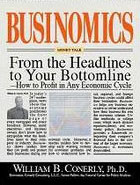Economic uncertainty is only one significant issue facing the telecom industry now, but it intertwines with the technological changes and social changes that are causing so much turmoil in the industry. Once the path for consumer and business spending is defined, the other changes affecting the industry will fall into clearer focus.

Consumer spending is reviving and now exceeds its pre-recession peak. Consumers were slow to get going after the financial crisis and even now are being conservative. Key to the growth is the increase in consumer incomes. That’s surprising to many given the weak employment numbers, but there is solid explanation for rising incomes. First, hours worked per employee has risen since the depths of the recession. Second, those with jobs have earned pay raises averaging about two percent per year. Third, taxes as a share of consumer income have fallen in the past two years, partly for stimulus policy and partly because lower incomes are subject to lower tax rates. Finally, we’ve actually enjoyed job growth in recent months, with the employment count about one percent higher than a year ago. So consumers have more money than they used to.
Consumers are being prudent with their extra income. About 88 cents out of every additional dollar of take home pay is being spent, with 12 cents going into savings and paying down debt. The average savings rate is about six percent now, so the practice of saving 12 percent of additional earnings will raise the average savings rate over time. This is sound financial practice for most households. Although more money is going into savings, more money is also going into spending. That ensures that the current economic strength will continue.
What are consumers spending money on? The housing-related categories are weakest: building supplies, furniture and appliances. Car sales are relatively soft. Plenty of the discretionary spending categories are doing quite well, including sporting goods and restaurants/bars. We’re seeing a mix of thrifty and extravagant. Consumers seem to be shunning showy bling, but they are willing to spend their money on fun things that bring satisfaction. So they may drop a landline as an act of thriftiness while adding a smartphone for fun and games. Consumer behavior will be similar to companies that have laid off workers. When finances improve, they often find that they don’t have to replace all the staff they cut back in the downturn. Similarly, consumers who eliminated their landlines may not replace them when they get back to work.
Businesses are still being fairly cautious about their spending, but with a major dichotomy between large corporations and small business. Corporate profits now exceed their peak level from prior to the recession. Over the past four quarters profits have risen by about 14 percent. The best gauge of corporations’ willingness to spend is order volume for capital goods, which has risen briskly in the past year. Most corporate treasurers are enjoying large cash balances but are also feeling nervous about the economic outlook. International troubles, including European debt, Middle East turmoil and the Japanese earthquake, weigh on the minds of corporate executives. As a result, spending is less centered on increasing production capacity and more focused on reducing costs. Propositions that will succeed with large corporations involve up-front expenditures that will produce cost savings in the future.
Small business is in a decidedly different position. The earnings of proprietors and partnerships have yet to recover from the recession. At the peak of the housing boom, some 14 percent of small business earnings were in the construction sector, and we all know how weak that is. However, plenty of non-construction small businesses are still hurting. Although there are exceptions across the country, the typical small business is avoiding unnecessary spending, even for projects that will save them money in the long run. They may be willing to pay higher lifetime costs so long as current expenses are low. When small business fortunes turn around, they will be more willing to invest for their future.
In a nutshell, consumers want their necessities cheap so that they can spend money on fun and games. Corporations are willing to spend money now to lower costs in the future, and small businesses are holding tight to the cash they have. That sounds like a complicated economic environment for telecom executives, but the world won’t simplify itself just to make your job easier.
- Bulenox: Get 45% to 91% OFF ... Use Discount Code: UNO
- Risk Our Money Not Yours | Get 50% to 90% OFF ... Use Discount Code: MMBVBKSM
Disclaimer: This page contains affiliate links. If you choose to make a purchase after clicking a link, we may receive a commission at no additional cost to you. Thank you for your support!




Leave a Reply